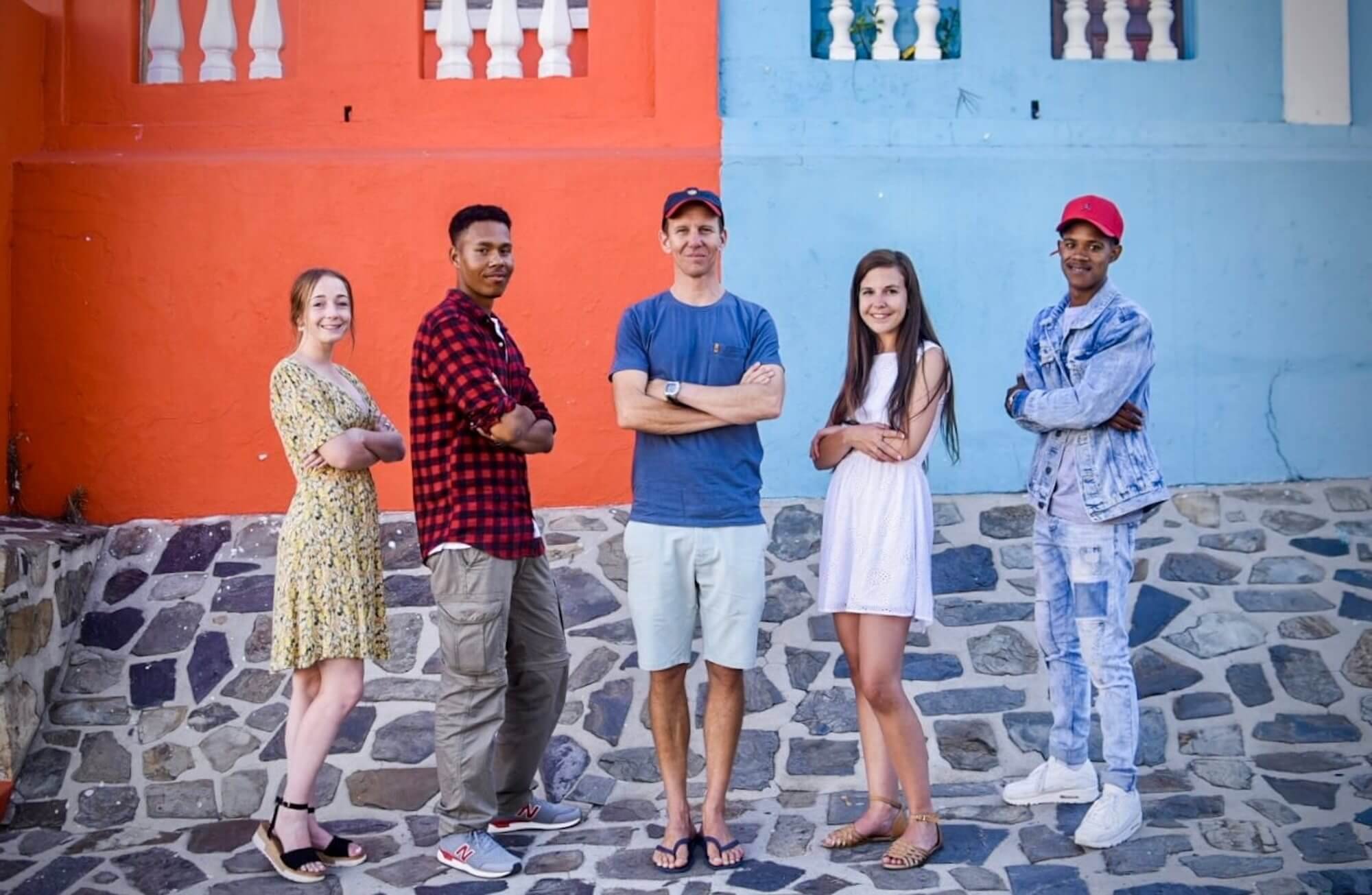
Frequently asked questions.
Why should I book RockHopper instead of another tour company?
Because you’re not looking for a tour — you’re looking for the truth behind the ocean stories. Most tours show you the surface. We take you deeper, guided by a real scientist working across global collaborations — from documentaries like Planet Earth III and Netflix Our Oceans to coastal community development programs. Every journey funds real conservation and measurable impact: shark tagging, youth training and capacity building, and restoration projects that ripple far beyond our shores. If you want a generic day out, there are cheaper options. If you want to feel something you’ll talk about for years — that’s us.
Are your experiences really private?
Completely. Shared tours limit flexibility and dilute the experience. We only host private journeys so that every decision — from timing to route to wildlife focus — revolves around you. That freedom is what allows us to find remarkable sightings when others don’t and tailor the day to your pace, comfort, and curiosity.
What types of experiences do you offer?
We guide people by land, sea, and air — private safaris along the Cape of Good Hope, whale-watching flights, penguin encounters, and kelp-forest snorkels. Each is led by a working marine biologist and crafted to reconnect you with the living ocean — not just to see it, but to feel part of it.
What happens if the weather changes?
We work with the ocean, not against it. Conditions shape our days — and that’s the magic. Because our experiences are private, we can shift timing, location, or activity to wherever the weather and wildlife align best. That’s how we consistently deliver encounters others cancel for.
Is it safe?
Yes — and it’s natural to ask. Every guide is a trained scientist and conservationist with years of field experience, advanced water-safety and rescue certifications, and deep local knowledge. From families with small children to visiting CEOs and filmmakers, safety underpins everything we do — quietly, confidently, without compromise.
What if I’m not a strong swimmer?
You don’t need to be. Many guests join us simply to observe from the boat, while others try snorkelling for the first time under full supervision in calm, shallow water. You decide your comfort level — we make sure the experience is equally powerful above or below the surface.
How long do the experiences last?
Half-day experiences are usually 4–6 hours, and full-day safaris run 7–8 hours, depending on conditions and preferences. Helicopter and online sessions vary slightly. Private design means we adapt the pace entirely to you — never the other way around.
How much do experiences cost?
Private safaris start from R17,000 ZAR (land), R29,000 ZAR (sea), and R98,000 ZAR (air) per group. Each includes a private marine biologist guide, all logistics, refreshments, and a direct conservation contribution. It’s not just what you pay for — it’s what your booking makes possible.
What’s included?
Everything: your private guide, snacks, drinks, towels, field gear, entrance fees, and all permits. You only need to bring a hat, sunblock, and a sense of adventure.
What should I wear or bring?
We recommend comfortable clothing, a waterproof / windproof jacket, and closed shoes for land safaris. For sea trips, bring a swimsuit if you plan to snorkel — we provide all snorkeling equipment. We’ll handle everything else, down to the binoculars and hot chocolate.
Are children welcome?
Absolutely. Families are a big part of what we do. Kids bring energy and curiosity — we bring patience and storytelling. Experiences are designed to be safe, flexible, and full of wonder for every age.
Can you arrange transport or hotel pick-ups?
Yes. We can collect you directly from your hotel or coordinate with your concierge. Helicopter transfers are also available for certain itineraries. However you prefer to travel, we’ll make it seamless.
What if I’m short on time?
Then you’re exactly who we built this for. In a single morning or day, you can experience penguins, whales, and the Cape of Good Hope — privately, without crowds or wasted travel time. You’ll see more, learn more, and still make your next meeting or dinner reservation on time.
How does my booking support conservation?
Every booking funds the RockHopper Fund’s research and education programs — from shark tagging and acoustic receiver networks to youth training and ocean literacy projects. You’re not just observing conservation; you’re making it happen.
Do you offer online or corporate experiences?
Yes — our Sharks x Wellness and Meet a Real-Life Shark Scientist sessions connect global teams and classrooms with live ocean storytelling from South Africa. It’s an unforgettable way to inspire connection, purpose, and curiosity — no matter where you are.
What’s your cancellation policy?
Plans change, and weather sometimes has its say. If we can’t safely run your experience, we’ll reschedule or refund in full — no hidden terms, no hesitation. We’d rather keep your trust than your deposit.
Are your guides qualified scientists?
Yes — every RockHopper guide is a working marine biologist or conservation professional with field, academic, and safety credentials. You’re guided by people who actively contribute to ocean science, not just talk about it.
Is RockHopper an NGO?
RockHopper operates across two streams, born from conservation science: RockHopper Tours and the RockHopper Fund NGO. One creates unforgettable journeys; the other drives our scientific, rehabilitation and community projects. Together, they make every guest part of a bigger story — working for the ocean.
How can I get involved beyond booking a tour?
Join our fortnightly Just On Marine newsletter for insights and updates, or sponsor a shark tag through the RockHopper Fund. You can also volunteer your skills in storytelling, data, or fieldwork. However you contribute, you help build the next chapter of ocean protection.
Final thought
Most people visit the Cape to see the ocean.
Our guests come to understand it.
That difference is everything — and that’s RockHopper.
